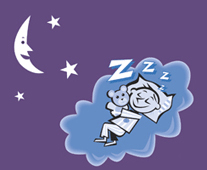Although sleep apnea is a common sleep disorder characterized by pauses in breathing while you sleep, many do not fully understand the nature of the condition.
Broaden your understanding of sleep apnea by learning more about the myths and facts associated with this common condition.
Myth: Only Older Adults Get Sleep Apnea
Sleep apnea can occur at any age. Though it is more common in individuals over the age of 40, sleep apnea can also occur in children.
In fact, as many as one in ten children have sleep apnea, though they typically outgrow the condition with age and experience milder symptoms than adults.
Fact: Weight Loss Can Reduce Symptoms
Because sleep apnea is linked to obesity, losing weight can improve and even eliminate symptoms associated with the disorder.
Even losing just a small percentage of body weight can reduce symptoms.
Myth: Sleep Apnea is Harmless
Because sleep apnea interrupts sleep, the condition presents a number of dangers, especially as disrupted sleep gradually takes its toll on the body.
Left untreated, sleep apnea can lead to car accidents, heart attacks, and job-related injuries.
Fact: Sleeping on Your Side Helps
Sleeping on your side can help open up your throat, increasing airflow to your lungs. To prevent yourself from sleeping on your back, which can result in a blocked airway, try using special pillows designed to keep you resting on your side.
Myth: Snoring and Sleep Apnea Are the Same Thing
While snoring is a symptom of sleep apnea, it is not synonymous with the condition itself. Individuals with sleep apnea actually stop breathing up to 400 times per night while they are sleeping.
To learn more about sleep apnea, contact Zeeba Sleep Center at (702) 242-1562.
We are an accredited Las Vegas sleep disorder facility specializing in the diagnosis and treatment of a range of sleep-related conditions, including sleep apnea, narcolepsy, insomnia, and restless leg syndrome.Call to learn more about our sleep studies and comprehensive patient care program.

